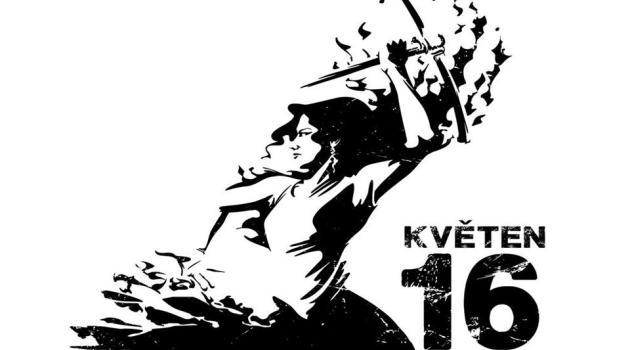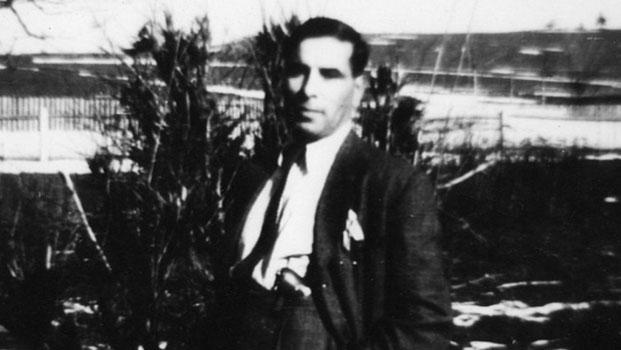Czech Republic: Romani Resistance Day event connects Auschwitz uprising with tenants whose power has been cut

International Romani Resistance Day was marked for the first time on 16 May 2017 by residents of Brno, Czech Republic with the reading of a play connecting the historical events of 1944 with current events there. Prior to this, the Romani uprising at Auschwitz has only been commemorated in the Czech Republic by a private event at the Lety Memorial to the concentration camp for Romani people there.
The reading was scheduled for 19:00 and was organized by the Feste Theater to take place in a former prison in Brno. The topic of the Auschwitz uprising was connected to situation of the Romani tenants living in an apartment building at Markéty Kuncové 2 who are also rising up against the practices of the landlord there.
“We have prepared a play that will be read by leading figures in Brno,” explained Jiří Honzírek, director of the Feste Theater. The text, based on the events of 1944 and on current events around the Markéty Kuncové 2 property, was slated to involve figures such as the dissident Petr Uhl, city councilor and chair of the City of Brno’s Committee for National Minorities, Martin Freund, the director of the Museum of Romani Culture, Jana Horváthová, and the director of the DROM organization, Miroslav Zima.
Together with the Feste Theater, the preparations to commemorate this significant day in Brno involved the “We Want To Live Indoors!” initiative (Chceme bydlet!) which, for more than a month, has been fighting alongside the tenants of Markéty Kuncové 2 to see that their rights are upheld. The owner of the building has turned off the power to it, is charging disproportionately high rents for apartment units in bad states of repair, and is refusing to turn on the hot water there.
“We want Romani Resistance Day to be celebrated in the Czech Republic as a living commemoration of the fight against oppression, which can take various forms. We logically drew a parallel with the situation at Markéty Kuncové 2, where impoverished Romani tenants have been standing up to the practices of the landlord. To resist blackmail and oppression requires bravery, whatever the specifics of the situation, and all such actions must be commemorated,” Jan Milota, a member of the initiative, said.
“The Holocaust of the Roma, which we currently commemorate as an inexcusable racist genocide, began to be prepared in the mid-1930s, not just in Germany, but also in Czechoslovakia. By the time the Holocaust of the Roma was in full swing, the public did not notice it at all, because that persecution of Romani people was just a continuation of the pre-existing antigypsyist sentiment among the public, which meant that this new, openly racist approach was not experienced by the public as anything new, and the evacuation of the ‘gypsies’ from the vicinity of non-Roma residences was just considered a comfortable solution to any eventual problems that might have arisen from their being neighbors,” Horváthová explained.
“In actuality, however, the Romani people were not just evacuated, they were primarily destroyed as a group – entire families, including the youngest members – not as a result of anything they ever did, but just because of their biological, genetic background, which was was conceived of as endangering the purity of the Nordic race. For that reason, the Romani people forced into Auschwtiz included those who caused no trouble at all to anybody else – they were integrated and working. The public did not even notice at the time,” Horváthová pointed out, adding: “The Roma Uprising at Auschwitz on 16 May was an absolutely unique phenomenon, a brave act, a display not just of a tragic desire to continue to live even if it meant living in hell, but paradoxically, it was also initiated by the fact that individual members of the Nazi staff at the camp began to perceive the Romani prisoners’ humanity and were even sympathetic to them.”
“The Roma Uprising at the Auschwitz concentration camp, where Romani people defied the order to go to the gas chambers, is an event that not just all Roma can be proud of, but all people who stand up against evil and who therefore deserve freedom. Commemorating this resistance is an important element of Romani emancipation,” said the dissident and journalist Petr Uhl.
On 16 May 1944 more than 6 000 Romani prisoners were scheduled to be killed in the so-called “gypsy family camp” at Auschwitz. They barricaded themselves into their barracks and were prepared to defend themselves with rocks and tools.
The members of the SS had not counted on the Roma to behave in such a way and postponed the destruction of the camp and its prisoners, eventually carrying it out on 2 August. Yesterday’s commemoration of Romani Resistance Day in Brno had the auspices of the Museum of Romani Culture.
